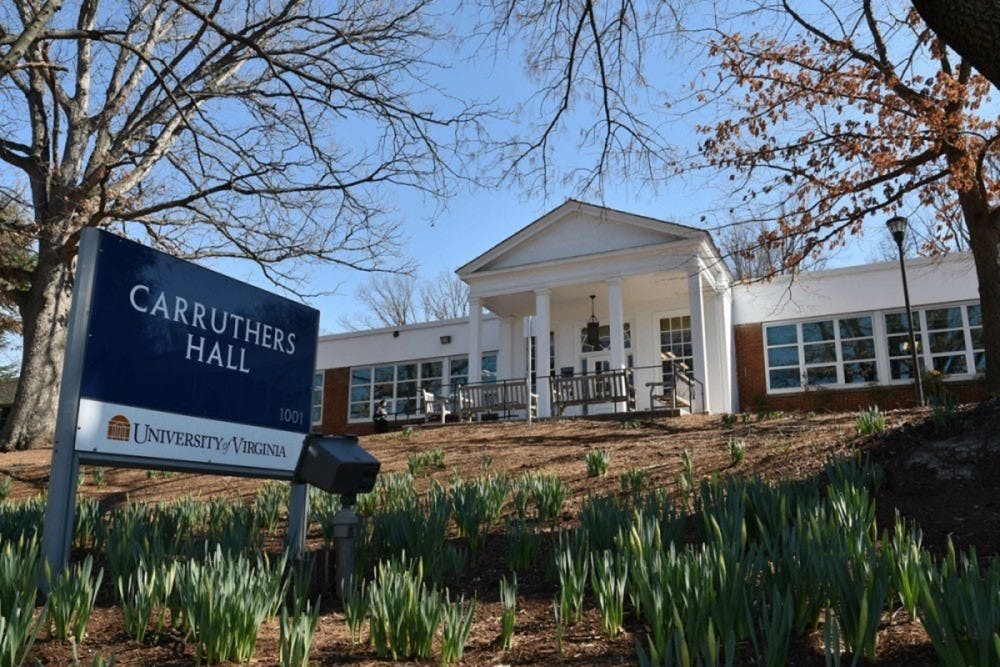This upcoming academic year, many students across the University have made the decision to stay on Grounds for the fall semester. With this comes numerous subsets of mandatory student fees in addition to tuition costs. While many of these fees were already superfluous entering the new year, they now gain a newly resounding reminder of the University’s disregard for student interests.
Mandatory annual student fees for the 2020-21 school year include an athletics fee of $678, a $21 increase from the previous year, and a $193 transit fee, up $2 from last year. This comes as athletic and transit services will both operate at reduced capacity. In addition, tuition itself has increased for University students, rising at varying rates across the schools despite in-person instruction being reduced in favor of online courses. While in-state students in the College of Arts and Sciences see a $506 increase in their tuition, out-of-state students in the School of Engineering and Applied Science are facing an increase just shy of $3,000. Erstwhile, housing costs have remained the same as previous semesters despite a shortened and delayed period during which students will actually be allowed on Grounds.
While the University’s changes in function are certainly necessary given the unpredictable and dangerous nature of the coronavirus pandemic, the University seems to have forgotten who it should be prioritizing — students and employees. However, these increased financial burdens on students suggest the University has chosen to instead prioritize someone else — itself.
The University’s 2019 endowments totaled approximately $9.6 billion. Even with that money, I and thousands of other students will pay almost $700 for athletic games I will never attend, both by choice and by the likelihood that athletic events will see limited attendance allowances this year, should the University decide not to prioritize ticket sales over community health.
Many students have breathed a sigh of relief at the option to stay home — not only because of health risks but also because it gives them a rare opportunity to reduce their student fees by $662, according to the University’s Return to Grounds website. This reduction covers transit and athletics fees, as well as fees for arts and recreational facilities. This means students living at home, away from Charlottesville, will still have to pay the semesterly $421 student health fee, for “telemedicine,” and the $130 Newcomb Hall fee, for “online programming.” For students living off-Grounds, these fees seem unnecessary and frankly extortionary, given how unlikely students are to actually utilize these services. The University makes it clear that $9.6 billion is not enough.
I would almost rest content if the University chose to allocate our student fees toward places more deserving of financial assistance. The Multicultural Student Center, Latinx Center and LGBTQ Center could use that $678 — a staggering amount once multiplied among roughly 17,000 undergraduate students — to help Black, Latinx, Indigenous, Queer, Transgender and other communities disproportionately impacted by COVID-19. However, the University’s $50 student activity fee and the $261 Newcomb Hall charge, where these Centers are located, indicate well enough that athletics are the incontestable priority.
Public transport around Grounds will be particularly hazardous this year, with buses inevitably becoming prime areas of transmission. Students should be strongly encouraged to walk or bike at greater rates than previous years. Surely, some of that $678 could be allocated to increase bus drivers’ pay for the upcoming academic year. They are, after all, a stronger gear in the Charlottesville community than practice fields. And surely, reduced transit services, increased driver pay and safety precautions, whatever cost that would produce, could come from the $9.6 billion given to the University, rather than out of students’ pockets.
Additionally, tuition increases for the 2020-2021 academic year are, frankly, absurd. The University’s Young Democratic-Socialists of America chapter has created a petition that, among many necessary and fair demands of administration, calls for a tuition freeze. The academic experience this fall and spring will face obstacles that decrease ease of learning, alongside the stress that walks hand-in-hand with living through a global pandemic. Again, I am comfortable assuming the University can find somewhere within its billions-dollar endowment the money to pay faculty the same as last academic year without hiking student tuition. Students and professors will undoubtedly work tirelessly this semester, but middle- and working-class University members do not deserve any increased financial burden — neither more academic expenses nor any risk of pay cuts.
Simply put, we need a universal tuition freeze. We also need a universal reduction in mandatory student fees. Athletic fees should be negligible if not voluntary. Given the mercurial times of a pandemic, any telemedicine offered by Student Health should be free for concerned students, especially students more likely to use healthcare services near their homes if they need help.
We cannot, as a university, enter this year on a foot that screams unconcern for student well-being and security, but as of now, that is the step we take.
Bryce Wyles is a Viewpoint Writer for The Cavalier Daily. He can be reached at opinion@cavalierdaily.com.
The opinions expressed in this column are not necessarily those of The Cavalier Daily. Columns represent the views of the authors alone.







